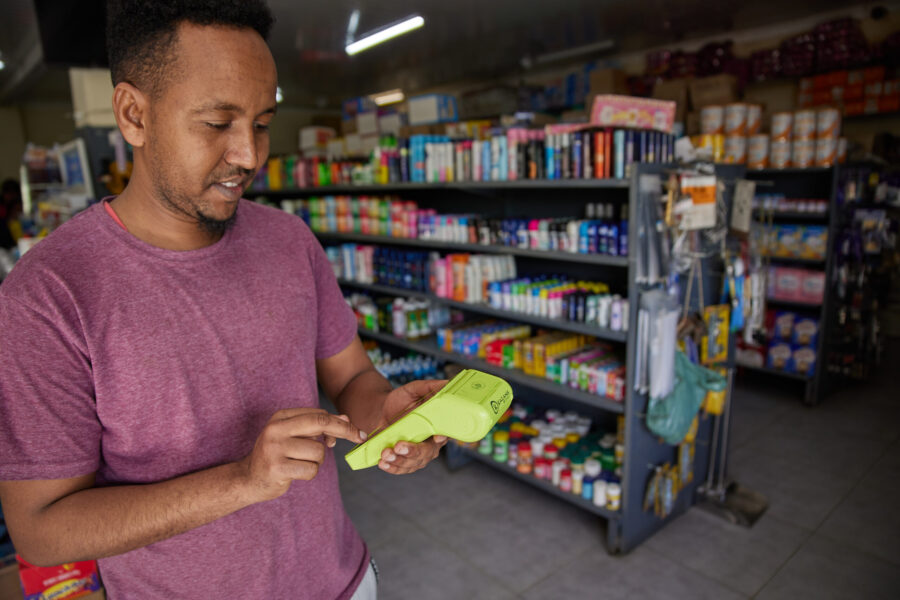Cashless payments have the potential to transform South Africa’s township economy by reducing transaction costs, improving financial inclusion, and lowering safety and security risks for consumers and merchants alike. These benefits could, over time, help to formalise township economies and facilitate faster growth.
That’s according to Martin Wright, CEO of Kazang, the prepaid value-added services (VAS) and card acquiring business within JSE-listed fintech Lesaka Technologies. He says that a heavy reliance on cash for transactions at spazas and other township micro-merchants inhibits the potential of the township economy.
Says Wright: “Millions of South Africans depend on the informal economy to earn their living and access their daily essentials. By some estimates, 17% of South Africa’s total employment is in the informal economy, which makes a 6% contribution to national GDP. Informal merchants are a lifeline to their communities.
“Spaza shops and hawkers help to keep money circulating in townships, while giving residents access to everyday products and prepaid services without needing to pay for a taxi to a metropolitan area. But dependence on cash has, up until now, inhibited the growth of this sector.”
Cash still king?
According to The 2022 South African Township CX Report from 2023, township respondents are far more inclined to use cash over any other types of payment method. Cards were ranked in second position. The report speculates that South Africans prefer the universality and relative transparency of cash as well as the absence of hidden fees.
But the picture is starting to change fast, partly thanks to massive penetration of SASSA debit cards and banks’ focused on affordable bank accounts for low income customers, says Wright. In addition, fintech companies have come to market with solutions that make it easy, convenient and affordable for spaza shops to accept card payments.
“Over the past three years since we launched Kazang Pay, we’ve seen remarkable growth,” says Wright. “This suggests that a lack of easy-to-use and attractively priced card acquiring solutions for informal merchants was one of the major factors holding back cashless transactions in townships.”
Today, informal merchants can access fintech solutions with low transaction fees and free terminal hardware (no monthly rental) if they process a reasonable volume of transactions each month. “Monthly rental costs and high transaction fees are no longer a barrier to card acceptance for even the smallest informal retailers,” says Wright.
Wright says that informal merchants are embracing card acceptance because it allows them to reduce cash deposit fees as well as the dangers of becoming victims of cash crime. Handling cash incurs costs related to transportation, security, and management. Digital transactions can reduce these expenses for both businesses and individuals.
Lower costs, more convenience
Digitalisation of payments can help informal merchants to create a footprint that could make it easier for them to access loans and other financial services. Card acceptance also enables them to increase basket sizes and to serve customers who aren’t carrying cash on them at a particular time.
Another benefit is that card payments can form part of a wider set of digital solutions that help informal merchants to grow their businesses. They can use the same terminal to accept card payments, process cashbacks, accept bill payments and vend services such as prepaid electricity, prepaid airtime and data, bill payments and gaming vouchers.
Not only does this help merchants to offer a convenient shopping destination, they can also earn commissions on transactions. Furthermore, they can also use a digital wallet linked to a Kazang card terminal to pay suppliers from wallet funds. This reduces the security risks associated with cash payments.

